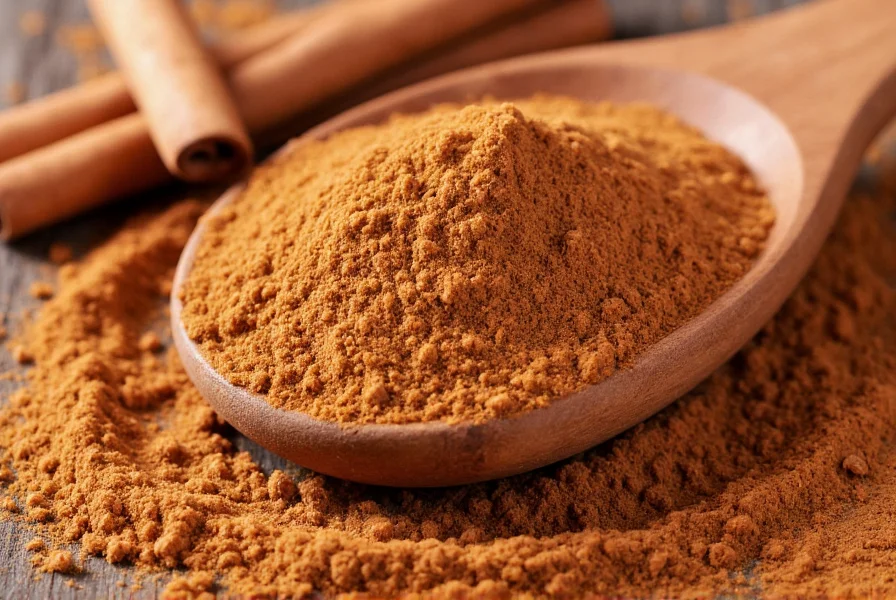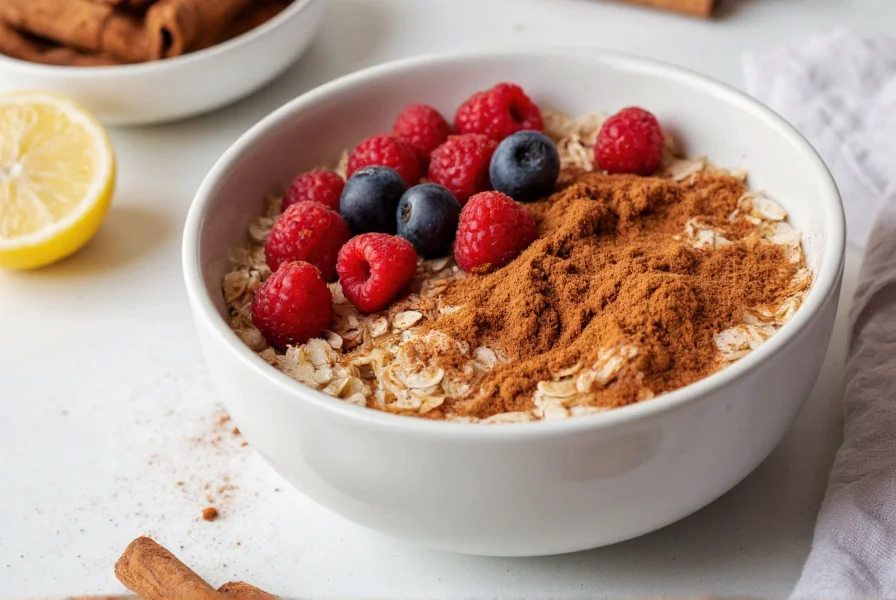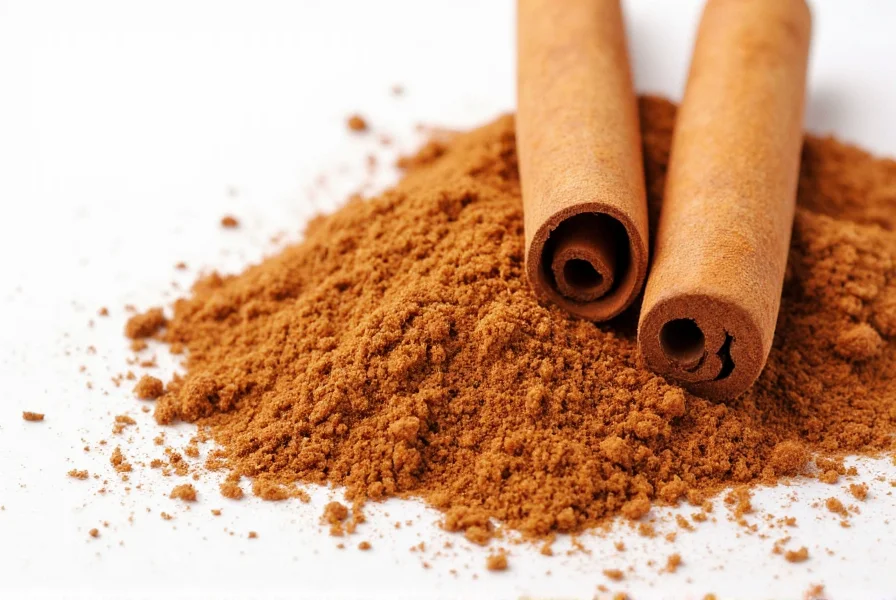Ground cinnamon has been used for centuries not only as a culinary spice but also for its potential health-promoting properties. This fragrant spice, derived from the inner bark of Cinnamomum trees, contains numerous bioactive compounds that contribute to its health profile. Understanding whether is ground cinnamon good for you requires examining both its benefits and potential limitations through a scientific lens.
Understanding Cinnamon Varieties and Their Differences
Not all cinnamon is created equal when considering is ground cinnamon good for you. The two primary varieties available:
- Ceylon cinnamon ("true cinnamon") - Contains significantly lower levels of coumarin, making it safer for regular consumption
- Cassia cinnamon (most common in supermarkets) - Higher coumarin content but more affordable and widely available
When evaluating the health benefits of ground cinnamon, it's crucial to distinguish between these varieties, as their safety profiles differ substantially. Most scientific studies examining cinnamon for blood sugar control have used Cassia cinnamon, though Ceylon may offer similar benefits with reduced risk.
Scientifically-Supported Health Benefits of Ground Cinnamon
Research indicates several evidence-based benefits when considering is ground cinnamon good for you:
Powerful Antioxidant Properties
Ground cinnamon ranks among the spices with the highest antioxidant capacity. These compounds help combat oxidative stress and may reduce the risk of chronic diseases. The cinnamon antioxidants benefits include protection against cellular damage that contributes to aging and various health conditions.
Blood Sugar Regulation
Multiple studies suggest cinnamon may improve insulin sensitivity and help lower blood sugar levels. A meta-analysis published in the Journal of Medicinal Food found that cinnamon supplementation significantly reduced fasting blood glucose levels. This makes cinnamon for blood sugar control a topic of particular interest for those managing prediabetes or type 2 diabetes.
| Benefit | Scientific Evidence Level | Recommended Amount |
|---|---|---|
| Antioxidant effects | Strong | 1-2 tsp daily |
| Blood sugar regulation | Moderate | 1-3 g daily |
| Anti-inflammatory properties | Promising | 1-2 tsp daily |
| Heart health support | Emerging | 1-3 g daily |
Anti-Inflammatory Effects
The cinnamon anti-inflammatory properties may help reduce inflammation throughout the body. Chronic inflammation is linked to numerous health conditions including heart disease, cancer, and neurodegenerative disorders. Cinnamon's ability to inhibit inflammatory pathways makes it a valuable addition to an anti-inflammatory diet.

Potential Risks and Limitations of Ground Cinnamon
While exploring is ground cinnamon good for you, it's essential to consider potential drawbacks:
Coumarin Content Concerns
Cassia cinnamon contains coumarin, a compound that in high doses may cause liver damage in susceptible individuals. The European Food Safety Authority recommends a maximum daily intake of 0.1 mg of coumarin per kilogram of body weight. For an average adult, this translates to approximately:
- 1 teaspoon (2.5g) of Cassia cinnamon
- Multiple teaspoons of Ceylon cinnamon (which contains minimal coumarin)
This is crucial information when determining how much cinnamon per day is safe for regular consumption.
Medication Interactions
Cinnamon may interact with certain medications, particularly those affecting blood sugar or liver metabolism. Individuals taking diabetes medications should consult their healthcare provider before significantly increasing cinnamon intake, as it could potentially enhance the medication's effects.
Practical Ways to Incorporate Cinnamon Safely
Understanding ground cinnamon vs cinnamon sticks health benefits can help you make informed choices:
- Choose Ceylon cinnamon when possible for regular use
- Limited to 1-2 teaspoons of Cassia cinnamon daily
- Add to oatmeal, smoothies, or coffee instead of sugar
- Use in savory dishes like curries and roasted vegetables
- Store in a cool, dark place to preserve antioxidant compounds
When considering is ground cinnamon good for you as part of your daily routine, remember that moderation is key. The health benefits are most pronounced when cinnamon complements an overall balanced diet rather than serving as a standalone remedy.

Conclusion: A Balanced Perspective on Cinnamon's Health Value
The question of is ground cinnamon good for you yields a nuanced answer. This spice offers genuine health benefits supported by scientific research, particularly regarding its antioxidant and potential blood sugar-regulating properties. However, these benefits must be weighed against potential risks from excessive consumption, especially with Cassia cinnamon.
For most people, incorporating moderate amounts of cinnamon into a varied, nutrient-dense diet can contribute positively to overall health without significant risk. As with any dietary component, cinnamon works best as part of a comprehensive approach to wellness rather than as a miracle cure.
What's the difference between Ceylon and Cassia cinnamon for health?
Ceylon cinnamon ("true cinnamon") contains significantly lower levels of coumarin than Cassia cinnamon, making it safer for regular consumption. While both varieties offer similar antioxidant benefits, Ceylon is preferred for daily use due to its lower coumarin content, which reduces potential liver-related risks.
How much ground cinnamon should I consume daily for health benefits?
For Cassia cinnamon, limit intake to 1-2 teaspoons (approximately 2.5-5g) daily due to coumarin content. Ceylon cinnamon can be consumed in slightly larger amounts (up to 1-2 tablespoons) as it contains minimal coumarin. Most studies showing benefits used 1-3 grams daily.
Can ground cinnamon help with blood sugar control?
Research suggests cinnamon may improve insulin sensitivity and help lower fasting blood glucose levels. Multiple studies and a meta-analysis in the Journal of Medicinal Food found significant improvements in blood sugar markers, making it potentially beneficial for those with prediabetes or type 2 diabetes when used as part of a comprehensive approach.
Are there any risks associated with consuming too much ground cinnamon?
Yes, excessive consumption of Cassia cinnamon (the most common variety) can lead to coumarin toxicity, potentially causing liver damage in sensitive individuals. The European Food Safety Authority recommends limiting coumarin intake to 0.1 mg per kilogram of body weight daily, which translates to about 1 teaspoon of Cassia cinnamon for most adults.
Does ground cinnamon have more health benefits than cinnamon sticks?
Ground cinnamon and cinnamon sticks contain similar beneficial compounds, but ground cinnamon may offer slightly better bioavailability of these compounds. However, freshly ground cinnamon from sticks may contain higher concentrations of active compounds compared to pre-ground cinnamon that has been stored for extended periods.











 浙公网安备
33010002000092号
浙公网安备
33010002000092号 浙B2-20120091-4
浙B2-20120091-4